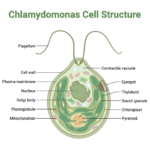IB Biology 57 Views 1 Answers
Sourav Pan🥇 GoldNovember 9, 2024
How do endocrine glands secrete hormones directly into the bloodstream, and what role does this process play in regulating body functions?
How do endocrine glands secrete hormones directly into the bloodstream, and what role does this process play in regulating body functions?
Please login to save the post
Please login to submit an answer.
Sourav Pan🥇 GoldMay 15, 2025
Endocrine glands play a vital role in the body’s hormonal communication system by secreting hormones directly into the bloodstream. This process is essential for regulating various physiological functions and maintaining homeostasis. Here’s how endocrine glands function and the significance of hormone secretion in regulating body functions.
Mechanism of Hormone Secretion by Endocrine Glands
- Ductless Glands:
- Endocrine glands are classified as ductless glands, meaning they do not have ducts to transport their secretions. Instead, they release hormones directly into the surrounding interstitial fluid, from where they enter the bloodstream .
- Hormone Release:
- Hormones are secreted in response to specific stimuli, which can include other hormones, changes in blood composition, or neural signals. For example, the release of insulin from the pancreas is triggered by elevated blood glucose levels .
- Transport and Distribution:
- Once released into the bloodstream, hormones circulate throughout the body. They can travel to distant target organs or tissues where they exert their effects. Hormones bind to specific receptors on target cells, similar to a key fitting into a lock, which initiates a cellular response .
Role of Hormones in Regulating Body Functions
- Metabolism:
- Hormones such as insulin and glucagon regulate glucose metabolism and energy balance. Insulin lowers blood sugar levels by facilitating cellular uptake of glucose, while glucagon increases blood sugar levels by promoting glycogen breakdown in the liver.
- Growth and Development:
- Growth hormone (GH) from the pituitary gland stimulates growth and cell reproduction. Thyroid hormones (T3 and T4) also play critical roles in metabolic rate and development during childhood .
- Homeostasis:
- Hormones help maintain homeostasis by regulating processes such as fluid balance (e.g., through antidiuretic hormone), blood pressure (e.g., through aldosterone), and calcium levels (e.g., through parathyroid hormone) .
- Reproductive Functions:
- Hormones like estrogen and testosterone regulate sexual development, reproductive cycles, and fertility. The pituitary gland releases luteinizing hormone (LH) and follicle-stimulating hormone (FSH), which control gonadal function in both males and females .
- Stress Response:
- The adrenal glands secrete hormones like cortisol and adrenaline during stress, which prepare the body for “fight or flight” responses by increasing heart rate, blood pressure, and energy availability .
- Feedback Mechanisms:
- The endocrine system operates through feedback loops to regulate hormone levels effectively. For instance, high levels of thyroid hormones inhibit further release of thyroid-stimulating hormone (TSH) from the pituitary gland, demonstrating negative feedback control
0
0 likes
- Share on Facebook
- Share on Twitter
- Share on LinkedIn




